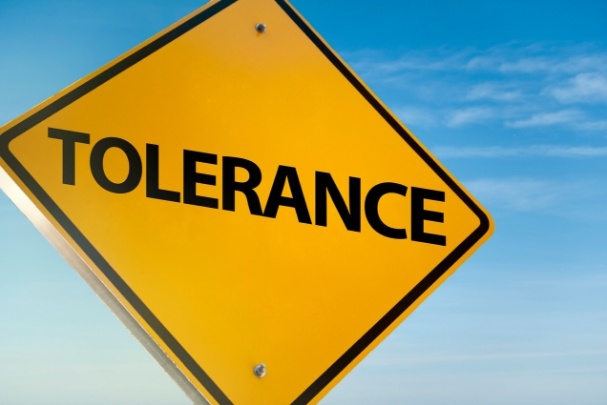This article first appeared in the Viewpoint column of the Christian Research Journal, Summer (1995). For further information about the Christian Research Journal, click here.
Virtue — the word sounds almost outdated. When I hear it, I think of such qualities as faith, hope, love, courage, justice, wisdom, fidelity, integrity, and moderation. I’m reminded of men and women who remain faithful to their marriage vows in the face of sexual temptations and strenuous trials, parents who sacrifice personal dreams so their children will have a better start at life, and employees who take a stand for what’s right rather than for what’s expedient.
Today, however, we rarely hear about such virtuous people. Instead, we’re presented with contemporary role models such as Marla Maples and Donald Trump, who use sexual license to destroy one marriage and create an illicit one. Obviously our society exalts the “virtues” of sexual freedom and the pursuit of self-centered happiness at any cost.
Then, of course, there’s Jack Kevorkian, the infamous “Dr. Death.” This heralded civil rights advocate for dignity in dying has assisted in the suicides of almost 25 people, many of whom were not terminally, nor even seriously, ill. According to Kevorkian, the degree of a person’s illness does not matter when it comes to making the death decision. Rather, Kevorkian explains, “the highest principle in medical ethics — in any kind of ethics — is personal autonomy, self-determination. What counts is what the patient wants and judges to be a benefit or a value in his or her own life.” In other words, the greatest virtue is whatever I decide is best for me.
This new moral code is playing well in America. We love self-indulgence and self-rule. So what if we kill our elderly and our depressed and our sick in obedience to the new virtues? What counts is what we want. To each his own.
Such new cultural “virtues” pervade nearly every aspect of our society, just as the old virtues did. And just as the virtue of self-sacrificial love bound together the older Christian virtues, so the “virtue” of tolerance is wed to the new secular “virtues” in an unholy alliance.
The tolerant person, so we’re told, is broad-minded — open to other beliefs, truth claims, moral convictions, and lifestyles. He or she makes room for others to do as they wish, even if their behavior contradicts or even mocks his own. He believes in “live and let live.”
During the ‘50s and ‘60s, being tolerant meant putting up with a slow salesclerk, restraining the desire to laugh at someone’s bizarre dress, or holding one’s tongue when a person made a harmless but erroneous comment. Being tolerant never meant condoning immoral behavior, letting harmful beliefs go unchallenged, or permitting a person’s dangerous lifestyle to influence, much less be taught, to others. In those days we may have disagreed about what is true, but few challenged the bedrock conviction that “true” is the opposite of “false,” and that truth does not tolerate untruth. We believed then that some beliefs and lifestyles promoted the common good while others undermined it.
Those of us who still believe these things are considered bigots, judgmental prudes, or moral fundamentalists by the new “tolerant” regime. Never mind that the new tolerance has led to the destruction of more than 30 million babies in America’s abortuaries. Never mind that the new broad-mindedness concerning promiscuous and homosexual sex is perhaps the leading cause of the spread of HIV — one of the most deadly and elusive viruses yet known to humankind. Never mind that the new openness to “alternative lifestyles” is bringing about legislation that gives civil-rights status to immorality.
We must stop this insanity. The new tolerance is not a virtue but a vice. We must expose it for what it is and replace it with the truth.
All truth is exclusive — it excludes what is false as it affirms what is true. After all, if it’s true that the capitol of the United States is Washington, D.C., then it’s false that the U.S. capitol is any other city on earth. That truth excludes innumerable cities.
Jesus was the incarnation of truth and compassion. He healed the needy, blessed children, and forgave sins. He even saved a woman apparently caught in adultery from being stoned to death (John 8:1-11).
And yet, He openly condemned hypocrisy and avarice. He threw businesspeople and their wares out of the temple because of their sacrilege (John 2:12-16). He called some of the religious leaders of His day “son[s] of hell,” “fools,” “blind guides,” “whitewashed tombs,” and “vipers” (Matt. 23:15-20).
Jesus was not the epitome of tolerance, and yet He came during the era of Roman tolerance. The Romans conquered lands militarily but allowed conquered peoples to keep their customs and religious convictions intact. This policy of tolerance led to Jesus’ death. Since the Pax Romana (“peace of Rome”) wouldn’t allow Jesus to upset the people under Roman rule, the tolerant Roman government tried, beat, and brutally executed an innocent man in the name of maintaining peace.
Whom will we emulate — the tolerant in our midst or the Lord over us all? Like ancient Rome, America needs Christians to stand up for what Christ did, not to capitulate to the new “virtue” of tolerance. What America needs are more prophets — imitators of Christ — who will reach out to the lost with compassion, while proclaiming the truth and living the virtues incarnated by the Savior. Prophets may not be honored in their own country, but no country will last long without heeding their wisdom.
William D. Watkins is president of his own literary company, William Pens. His most recent book is A House United? Evangelicals and Catholics Together, written with Keith A. Fournier (NavPress, 1994).









